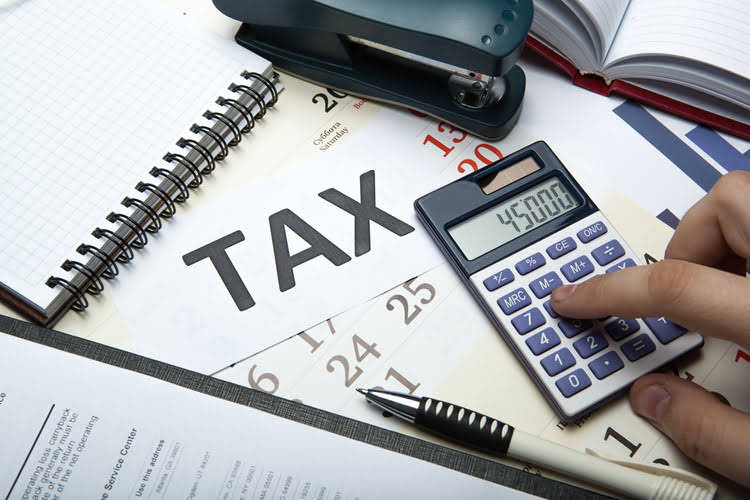
Larger expenses include office rentals, event space, and recurring services such as cleaning or maintenance. As more real estate professionals operate in a mobile format, these costs may be minimal. Use dedicated accounting software to categorize income and expenses by property for better organization and accuracy. Common deductions include mortgage interest, property maintenance, insurance, property taxes, and depreciation. Real estate professionals face unique accounting challenges that require careful attention to ensure financial success.
Real Estate Accounting: A Comprehensive Guide for Property Investors and Managers
The depreciation amount can be deducted from your taxable income, thereby saving you a substantial amount. Being a real estate brokerage firm, you can say that the salary you pay to your employees is your expense. This equation states that the sum of your liabilities and equity must produce the total number of assets you have.
Association Fees and Expenses
- Emphasizing good accounting practices brings in the advantage of tax savings.
- While accounting and bookkeeping are often used interchangeably, they serve distinct purposes in managing your finances.
- On the other hand, bookkeeping is primarily concerned with tracking transactions accurately and ensuring that all records are up to date.
- Accurate financial reporting is essential for those managing a real estate agency.
- If you want to simplify your business, peek at our bookkeeping solutions and learn how to generate net cash flow reports on the fly and prepare for tax season in a snap.
- In real estate, expenses can accumulate quickly, and effective management is key to maintaining profitability.
- This article will walk you through the essential accounting practices every real estate professional needs to master.
More specifically, real estate accounting deals with the potential revenue generated by properties and matters of taxation, including crucial real estate agent tax deductions. While accounting and bookkeeping are often used interchangeably, they serve distinct purposes in managing your accounting for real estate transactions finances. Both are essential for real estate agents to maintain a clear financial picture, but understanding their differences can help streamline your financial processes. In real estate, expenses can accumulate quickly, and effective management is key to maintaining profitability. By keeping track of common expense categories, you can gain better control over your finances and ensure that costs do not outweigh income.
Real Estate Accounting Guide: Principles, Software, & More
- A cash flow statement provides insight into the financial health of your business and helps in identifying areas where you can cut costs or invest for growth.
- Real estate accounting is essential to the success and daily operations of real estate agents and firms.
- The ultimate goal is to help your business grow sustainably while remaining financially sound.
- It is not unusual for such activities to spread over two or more accounting periods.
- Taking the necessary steps to ensure accurate and compliant bookkeeping practices will help avoid potential legal issues or financial losses moving forward.
Whether the purchase is cash-based or financed through a loan, it’s crucial to record these details correctly to ensure accurate financial reports. For above-market leases, it’s reasonable to assume the tenant would decline any options to extend. For below-market leases, the remaining lease term is typically projected to include all defined, favorable option terms. A personal property tax is a tax placed on “moveable” items on your property. If these items produce income for your company, they may be subject to a personal property tax.
- In this guide, you will learn key accounting concepts, from tracking diverse income streams to managing expenses and leveraging tax deductions.
- Understanding the division between bookkeeping and accounting gives you more confidence and helps you know when to delegate tasks to other professionals in these crucial areas.
- Real estate accounting is used for the purpose of property management which is a process that involves enormous sums of money.
- Addressing these challenges is crucial for maintaining financial integrity and ensuring the success of real estate investments.
- Engage a CPA or auditor to perform regular checks on your financial reporting to ensure compliance with tax laws and regulations.
- Accurate data is also very important for generating various financial reports, such as profit and loss statements and income statements.
To track expenses on the go, just download the mobile app for iOS or Android, scan a receipt, and Stessa will parse the receipt data to create a new expense entry that is automatically categorized for you. Simply sign up for a free account, enter your rental property address, connect your bank accounts quickly and securely, and see your real estate portfolio stats come to life. Many real estate investors are pleasantly surprised to learn that bookkeeping and accounting tasks can often be automated. Establish internal controls such as regular bank statement reconciliation and expense approval methods to maintain financial integrity.

A chart of accounts categorizes all financial items in your business, including assets, liabilities, income, and expenses. Jeff has over 25 years of experience in all segments of the real estate industry including investing, brokerage, residential, commercial, and property management. While his real estate business runs on autopilot, he writes articles to help other investors grow and manage their real estate gross vs net portfolios. Effective budgeting and forecasting allow real estate agents to anticipate market fluctuations and prepare for unexpected expenses. Using historical financial data and current market trends, agents can allocate resources efficiently, plan for slower periods, and invest strategically in marketing or property improvements. Maintaining precise and up-to-date records is critical for staying organized and compliant with tax regulations.

Impact of Real Estate Transactions on Accounting Processes

If you want to simplify your business, peek at our bookkeeping solutions and learn how to generate net cash flow reports on the fly and prepare for tax season in a snap. For example, in the revenue category, a Bakery Accounting landlord may have individual accounts for rental income, late fees, and other rent (such as pet or roommate rent). A good real estate accounting system automatically creates a paper trail to back up every income and expense item claimed. Instead of having to dig for information the IRS requests, documents are neatly organized if you are ever audited. An accounting system for real estate will help you keep track of documentary evidence like invoices and receipts, to help you defend each deduction. While an automated real estate accounting system may never completely replace your accountant, it can help to reduce outside expenses paid to a bookkeeper or CPA.
Is there Accounting Software for Real Estate Agents & Investors?
The right real estate accounting system always considers everything that makes your small business unique. It’s entirely possible to find an adaptable solution that accommodates your business practices, whether that includes property management, working with tenants, or tracking commissions. Going from property to property to sell, speak with clients, or monitor a network of properties requires a lot of time and travel. Many real estate businesses must remember to include these numbers in their real estate accounting procedures.

Utilizing specialized real estate accounting software can streamline the process and reduce errors in managing financial records, income statements, and balance sheets. Regularly reconciling accounts and conducting audits are essential to maintain accurate financial records and ensure the integrity of financial reporting. Real estate bookkeeping involves recording and tracking all financial transactions related to real estate activities. This includes documenting income from rent and sales, expenses for maintenance and operations, and preparing financial statements.












